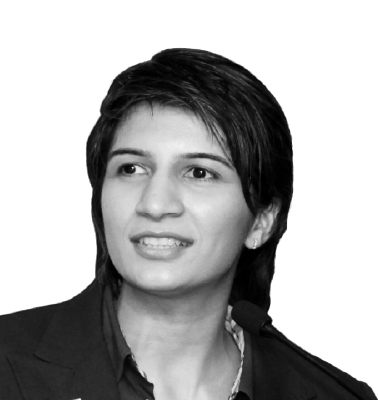 The rapid rise in inter-connectivity, information flows and the complex global supply chain has resulted in higher risks for organisations. Managing a responsible business today has become increasingly complex due to its vulnerability to cybercrimes, security breaches and online fraud. This means there is a greater need for businesses to become more structured, and to consider input from specialists who can suggest checks and measures to secure business information.
The rapid rise in inter-connectivity, information flows and the complex global supply chain has resulted in higher risks for organisations. Managing a responsible business today has become increasingly complex due to its vulnerability to cybercrimes, security breaches and online fraud. This means there is a greater need for businesses to become more structured, and to consider input from specialists who can suggest checks and measures to secure business information.
The third annual Chartered Global Management Accountant (CGMA) report on ‘Managing Responsible Business’ released by CIMA and AICPA, gathered insights from over 2,500 CGMA designation holders and CIMA students, working in both private and public sectors, to review how the ethical landscape of businesses has shifted since 2012.
This study, which was conducted with an aim to help organisations recognise the importance of ethical practice and integrated reporting, found that there have been shifts in different markets since 2012, with India and South Africa reporting less pressure and, conversely, the UK and US admitting to more. Given the increased attention paid to “responsible business”, this may reflect a growing awareness of the importance of ethical standards. There might also be a heightened sensitivity as to when a wide range of standards and policies within the organisation are compromised.
Due to this shift, finance professionals feel pressured to compromise ethical standards. They are being forced to overlook poor practice or could be behaving unethically due to the struggle to work through a crisis of culture within business. The key is to maintain focus in such situations.
Ethical performance cannot be neglected and organisations cannot afford to dismiss ethical business protocols. The majority of businesses have codes which are put in place, but are nonetheless overlooked. The report highlights that as few as 36 per cent of respondents confirmed that their organisations are known to collect Ethical Management Information (EMI) that enables them to assess and address risk. This is despite an increase in demand for data on ethical business practices, particularly from the investor community; 30 per cent of whom are users of EMI.
Ethical practice keeps the organisation in a healthy place by avoiding misconduct. The ignorance of ethical protocol results in destroying the reputation of a business, which is something that can happen overnight. It is mandatory for an organisation to continuously collect and interpret information about ethical performance, which enables an organisation to predict if they are heading in the right direction in terms of fulfilling the codes of conduct. Organisations today have become aware of the need to be further structured and ethical, as businesses are prone to risk due to neglecting or avoiding ethical code of conduct. In order to establish an easy-to-follow structure that integrates with the organisation’s strategies, it requires leadership and focus on codes of ethics as well as integrated reporting.
In the long run, running integrated reports and ethical practices benefits the organisation immensely. Integrated reporting systems collect information on ethics from both management and stakeholders. Management accountants possess the required skill set and expertise to not only gather data, but also to analyse and interpret them. In particular, through integrated reporting, management accountants are able to identify risks and thereby protect the organisation from unethical practice. Once they have built trust within the organisation, they encourage a positive working environment and culture and also win the stakeholders’ confidence. It is also highly recommended that organisations disclose information to the public and be as transparent as possible due to the fact that individuals prefer and trust a company that is transparent and honest.
To access the full report, http://www.cgma.org/Resources/Reports/Pages/2015-managing-responsible-business.aspx












